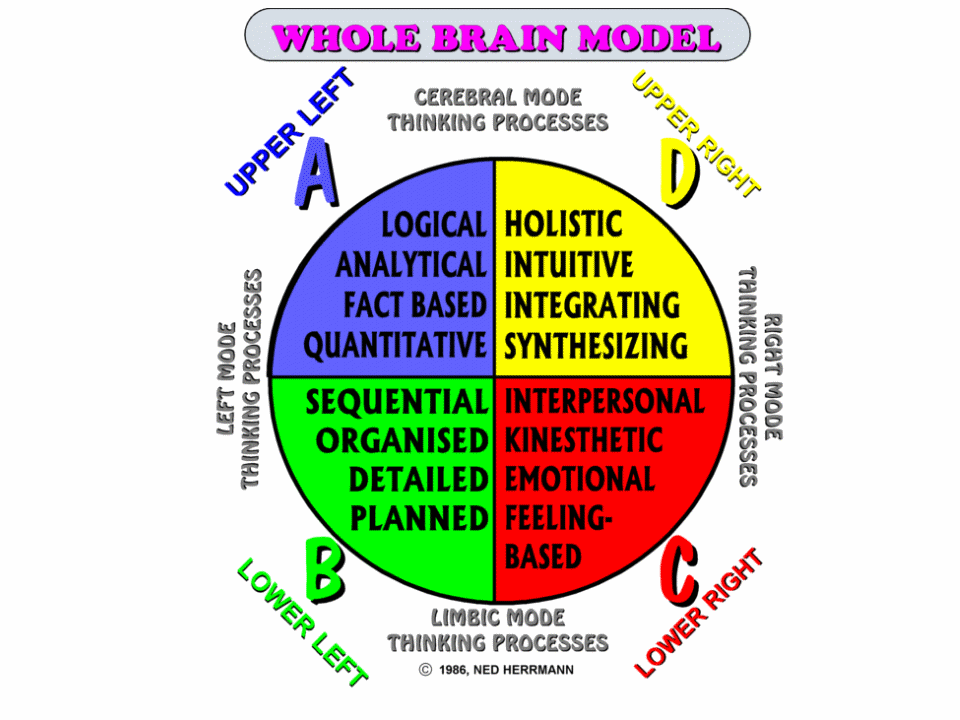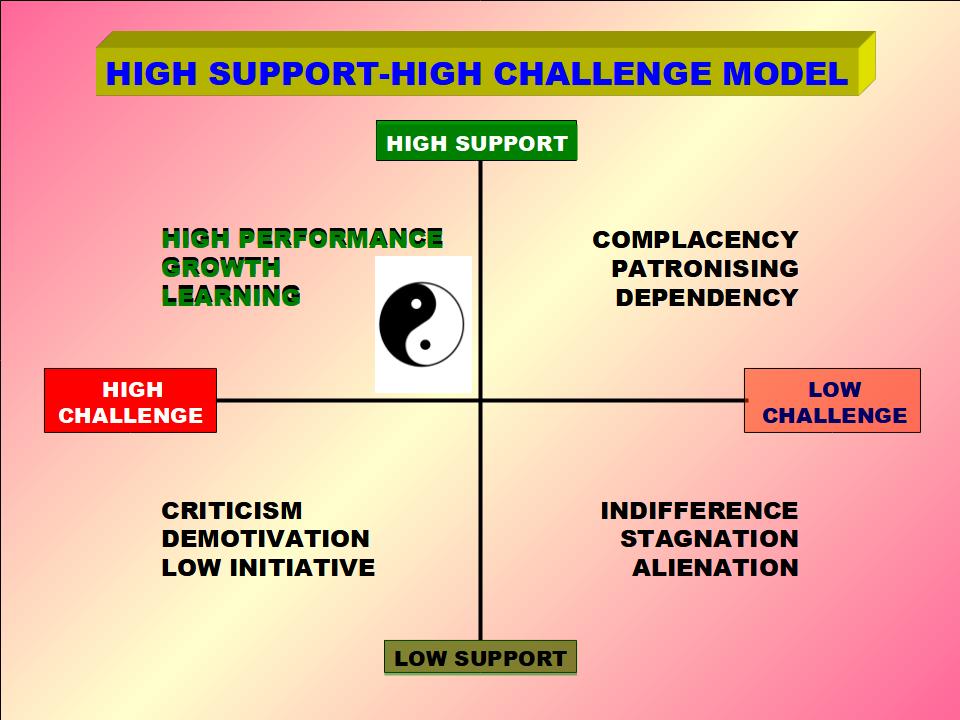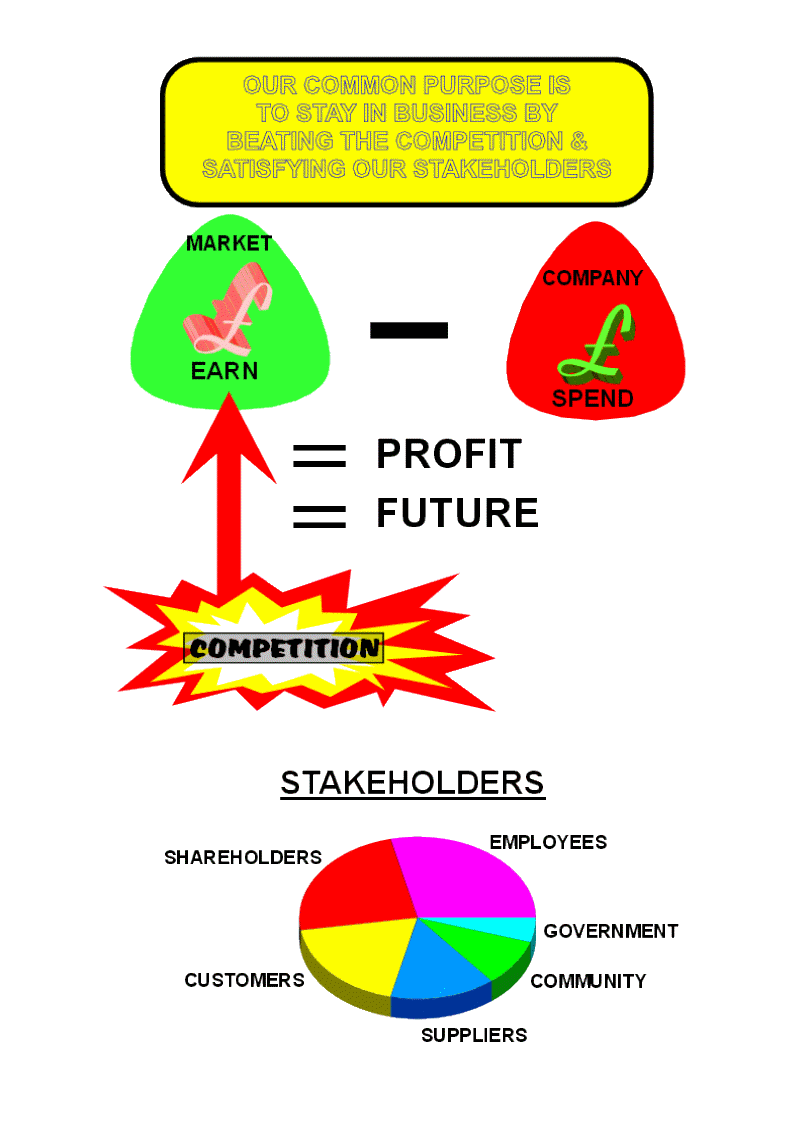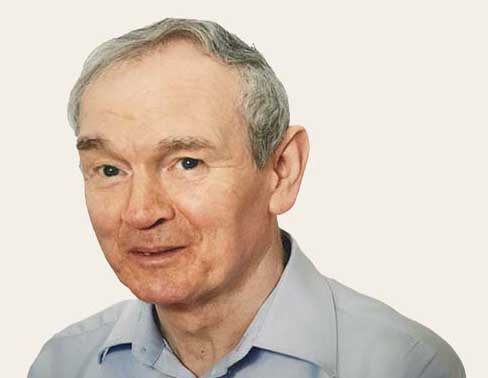to help themselves,
to release and realise more of their potential
Dennis Martin Consultants
Contact us and see how we can work together and create a path to the future that you, your people and your business deserve.
- home index page
- The Pfizer Ireland Story
Pfizer Ireland Tablet Plant Achieved Record-Breaking Financial Success and made Work an Enhancing Experience for its People.
Why? & How?
PAGE KEY POINTS
On this page you will learn:
* why and how the culture of a new plant was designed to be bespoke and different, i.e. 'radical'
* what was involved in achieving this
* that the new plant was a record breaker in all aspects; e.g. performance metrics and in being an enhancing experience for its employees
* how the potential of its people, and the plant, was released and realised and exceeded everyone's expectations
Imagine a highly successful, highly profitable business which has broken the zero-sum paradigm of business versus employees and has created a culture and environment in which work is an enhancing experience for people.
Imagine a high performing business in which record-breaking financial returns are the emergent outcomes of every employee managing their work and themselves effectively.
Impossible?
A pipe-dream?
What follows in the Pfizer Ireland Tablet Plant Story briefly explains the development of the culture in the business, and why and how it was designed to achieve the above.
The story is told by the external facilitator OD consultant who helped Pfizer leaders take a bold step into the unknown: Dennis Martin
Most of what follows draws on an appraisal of the Tablet Plant culture carried out by an ex-Function Head of the Tablet Plant who experienced everything here described.
Given the strategic significance of Lipitor manufacturing, it was undeniable that the Pfizer Ireland Tablet Plant MUST be a high performing business, which would consistently exceed the legitimate demands of all its stakeholders (i.e. it must be the best in the world at what it does) – these were defined as the non-negotiable ENDS to be achieved.
Benchmarking, scanning environments and research by key senior leaders in the early days identified that:
- “traditional”
management practices (especially if they included traditional Trades
Unions relationships) could not deliver the non-negotiables above
- a team-based
approach was likely to be the most effective approach
Clearly the Pfizer Ireland Tablet Plant was going to be more complex than originally thought.
Discussions between the Tablet Plant leaders and an external facilitator mentor (Dennis Martin of MDS) led to a cultural design based on five key concepts:
- complex
adaptive systems
- learning
organisations
- continuous
improvement
- whole brain
thinking and creativity
- personal responsibility
The intended culture was clearly seen as a means to the non-negotiable ends and as, “resurrection is much more difficult than birth”, the Tablet Plant started out with a business plan that outlined a flat, upside-down, inside out organisation structure involving self-managed teams continuously learning and delivering high performance.
The decision was also made that the Tablet Plant would be non-union on the basis that a union-management organisation operates from a set of “them and us” assumptions which would make impossible high performance and work as an enhancing experience for the people concerned.

The 6 key characteristics of the
designed culture
- high
performance
i.e. everyone would see their work as their business; would continuously improve everything they did and would be innovative in initiating and responding to change
- trust
i.e. every colleague would be valued (and experience that feeling) and relationships and interactions would be conducted on an adult-to-adult basis. Trust was defined as: "I know that you will not take unfair advantage of me"
- thinking i.e. everyone
would
understand their thinking preferences (and others’ thinking preferences) and would, therefore, value differences as a means of generating ideas and improvements (please see the whole brain model above).
- learning
i.e. everyone would be a learner (learning from everything they did and from everyone they worked with) and a mentor (to everyone else).
Learning was defined as: “enhancing my capacity to create my own future”
- team
based
i.e. everyone would provide high-support and high-challenge (please see model below) and would work with others to ensure that differences produced synergy (2+2 = 5).
- self-managed
i.e. everyone was perceived to be able to manage their own lives and in so doing to use skills that were equally valid in running their own business.
In addition, everyone was defined as a leader (either formal or informal), given the definition of a leader as "someone others turn to for advice, guidance and support"

A key element of the team based flat organization culture was the assumption that all colleagues, with help, learning and support, are competent and willing to organize their activities and execute role functions without the need for overt supervision.
This assumption was based on the realization that employees are competent to run their personal lives on a daily basis.
The same planning, foresight, and work required to purchase a home or automobile; to organize and live within a budget; to plan any social activity; etc. are necessary in the place of employment to plan and execute one’s work schedule.
If the employees are competent and responsible enough to manage their personal affairs, then it is reasonable to assume that they can and will also manage the responsibilities related to their livelihood.
Another key to the culture was the assumption that the diversity of individual skills, experiences and thinking meant that teams collectively possessed all the skills required to execute the functional task while not requiring each individual to be expert in every task.
The Pfizer Ireland Tablet Plant culture was intended to create an environment in which everyone owns their work.
As problems arose, the production technicians did not automatically defer resolution to a ‘supervisor’ and take a break until the problem was fixed.
Rather, the technician investigated the problem and contacted the appropriate resources to assist as appropriate.
Essentially, each colleague supervised themselves and their own activities.
This obviated the need for the traditional supervisor and hierarchy, with the benefit that the entire operational staff was applying its collective knowledge and time towards progressing the manufacturing schedule, rather than placing this responsibility on a single individual.
As an illustration, the Operations Lead had 121 direct reports. Observers would ask, 'but how did she control them?'. The answer was, 'she didn't, they did'.
The 6 Stakeholders Model below was used in the induction of everyone into the Tablet Plant as an expression of our common purpose.

For the culture (means) to work, and deliver self-sustaining high performance (ends), it required minimum (or no) “stabilisers” (such as a boss and hierarchy trying to command and control others top-down from a central point).
Instead, the following alternatives to 'traditional management' were used:
- trust, trust, trust
- oceans of support
- empower, give power away
- value differences
- seek adjacent possibilities
- love mistakes to death
- make connections – network extensively
- think and learn
- self-responsibility – take ownership
- be comfortable with the uncomfortable
- listen, listen, listen
- everyone behave as a leader
- seek feedback – and be willing to give it
In practice, this meant doing things in a significantly different way to a traditional business culture.
For example, in the Pfizer Ireland Tablet Plant:
- two full-time,
dedicated Team Development Mentors were
available as a key support resource for all employees to help them
along the learning and experience curves created by the unique
culture
- The contribution of the highly skilled Team Development Mentors, and their professional mentoring, was critical in establishing the giving and receiving of feedback for learning and development purposes as a major asset in the success of the Pfizer Ireland Tablet Plant Story
- there is no probationary period after recruitment – if a candidate successfully goes through the rigorous assessment centre process (which includes their peers-to-be), they are fully employed (no “you’re on test for 6 months”)
- there is no overtime pay – everyone is a salaried employee, there are no hourly paid employees (performance is not related to time, but to achieving goals)
- everyone manages their own 360-degree, paperless feedback process (with help from a mentor if requested). This process is eye-to-eye (no forms to hide behind) and is about learning (not measurement) with two over-riding criteria – feedback must help the person perform better in their role and help them grow and realise more of their potential
- pay is determined by a transparent benchmarking process and is not linked to appraisals or feedback. Pay is for the job done and role fulfilled, not for the person or length of service
- in addition to 360-degree feedback, individual 1-to-1 feedback is most frequently initiated by the receiver, as and when needs demand
- teams also have “look in the mirror” feedback exchanges, within a specific team and/or between teams
- if an employee identifies a problem to be solved, or an idea for improvement, he or she will take ownership for it and see it through to completion, drawing on other resources as needed
- there is no veto on the services of a Team Development Mentor – any employee can initiate their help, and mentoring, as needed
- by
conventional standards, massive learning investments take place in
the Tablet Plant.
- In particular, a two-weeks, full-time learning programme is available for all new starters which covers technical aspects of their roles and in-depth exploration of the culture and each person’s rights and responsibilities with regard to it. Culture Refresher sessions are also held for existing employees
A key to making the culture work was also an appropriate leadership style (and every colleague was seen as “a leader”).
Leaders had to learn how not to manage people in the traditional sense (if you have to manage someone else you’re wasting their time and yours..... and a lot of money), but rather to make their key contribution by:
- scanning the
environments (internal and external)
- doing
something as a result (sharing feedback; making connections; making
decisions)
- clearing
pathways for colleagues (e.g. removing stabilisers, inhibitors,
obstacles)
- providing
oceans of support
- innovating
participatively (e.g. synergy)
- living the
values (doing the right thing)
- holding
accountabilities (closing the loop)
- promoting and using the design principles (i.e. to be a role model)
Finally,
we expected the culture to evolve and change as colleagues moved
along their learning and experience curves.
Fundamentally, the colleagues are the culture (it is not something a management does to them) and a major stakeholder.
We expected, in line with complex adaptive systems thinking, that new approaches and changes would emerge as we went along – we did not have, or want to have, a master blueprint that controlled the process.
In the absence of such a “master plan”, we expected to trust our own and colleagues’ values and beliefs, experiences of the culture and intrinsic motivation to “do the right things” to achieve the non-negotiable ends of high performance and personal growth.
The Pfizer Ireland Tablet Plant did NOT have a plan B.
Benefits of the culture – did it work?
The Pfizer Ireland Tablet Plant Story clearly shows that the unique culture has been, by all measures, an outstanding success.
For example:
- facility
start-up from ground breaking to full regulatory approval was
achieved in 30 months (and 85% of the people recruited into the
Tablet Plant had not worked in the industry before)
- the
facility was completed within the original project budget
- the
IMB inspection report was the first example in which there were no
critical or major deficiencies found
- the
FDA inspection team indicated that their inspection report was the
shortest that these individuals had ever issued
- the
facility received full regulatory approval 4½ months ahead of
schedule while absorbing a nine months construction delay
- every
goal for total batches produced has been met or exceeded
From a performance efficiency standpoint, and in terms of realized earnings, Pfizer has received exceptional returns on the investment made in the Tablet Plant cultural initiative.
Establishing a self-managed, team based work environment in which all colleagues are empowered to make decisions within the framework of established policy and procedures has resulted in a corporate or collective decisiveness which facilitates meeting cycle times and production schedules.
Knowledge and expertise is shared within the team, and each individual respects the contributions of the others in the team.
At the same time, individuals have derived enhanced self-esteem and commitment to the success of the endeavour.
Three Key Lessons Learned
The Pfizer Ireland Tablet Plant Cultural Initiative 'taught' us:
1. Senior Leadership:
The cultural initiative requires absolute commitment from the site leadership staff, and visible, felt sponsorship from Senior Leaders.
If this commitment is not forthcoming, then the initiative will not be successful.
This will require constant reiteration of the cultural
purpose, values, behaviours and characteristics, as when under
pressure individuals and organizations will tend to revert to what
they know best (e.g. command and control management; centralized
decision making; consistency, certainty and conformity; task
dominated short-termism).
2. Disciplinary
Action:
Traditional disciplinary procedures are inappropriate in the culture described.
Of course, unethical or illegal activity must be dealt with directly, up to and including termination.
However, when discipline is required, it is to be handled maturely, directly, and humanely. It is not intended to be a cause for disgrace or embarrassment.
On the other hand, there is a responsibility for the colleague to reflect upon and learn from the process to meet expectations.
One key point of the culture is that while it is a team-based environment, the individual is held accountable, and cannot hide behind the organization.
Policies and practices are formulated based on the best employees, not the worst.
The benefit is that the greater number of employees are not restricted by policies or rules in response to the ill-advised actions taken by a single or a few employees.
3. Performance:
In extending the professional status typically associated with credentialed individuals to the Technicians and Analysts, there is necessarily a need to extend also the performance review process to all employees.
Individuals who have never in their career been involved in planned and formal performance review may find this process intimidating.
This is reasonable to assume particularly for individuals whose previous experience has led them to associate performance reviews only with disciplinary action and/or pay increases.
Much effort must be given to preparing, communicating, and mentoring all colleagues in the giving and receiving feedback process.
That concludes the Pfizer Ireland Tablet Plant Story.
If I may, I would like to add a few personal thoughts:
This story is well worth telling to recognise and give credit to the 250+ people who were involved and achieved so much.
Without exception every one of them rose to the challenge of a new plant with major strategic significance to Pfizer and Ireland and its people.
No one of us knew or even suspected that such a momentous story of success and personal enhancement would unfold from the commitment, motivation, creativity, fun and teamwork effort displayed by people who were self-managing for the first time.
The culture emerged from the complex adaptive system that was the people and they released and realised more of their individual and collective potential, and that of the business, than could ever have been described in advance on a piece of paper.
This justified the decision NOT to have a master plan for the culture design and development nor to have a Plan B in case what we were doing didn't work.
The presence of either or both of those two documents would have risked a self-fulfilling prophecy of sub-optimisation some way below the amazing standards that were actually achieved.
Self-managing people created the Pfizer Ireland Tablet Plant Story by doing the right things, continuously learning and improving, using their brains, hearts and hands, accepting and thriving with personal responsibility.
They created a unique record-breaking culture, implemented it, nurtured it and developed it. It belonged to them. They owned it. They thrived in it. I felt that there was an air of stimulating freedom there.
They were truly a pleasure and a revelation to work with, especially Eileen, Andrew, and Lee. May I say a big 'Thank You' to everyone in The Tablet Plant for enriching my work and life. Dennis Martin.
As far as I can tell, what they did and how they did it had never been done before in Pfizer or in the pharmaceutical industry.
As far as I know, every one of those people walked out of the plant with pride at their outstanding achievements over the 13 years before the Tablet plant was closed.
So, PAGE SUMMARY
On this page you have learned:
* why and how the culture of a new plant was designed to be bespoke and different, i.e. 'radical'
* what was involved in achieving this
* that the new plant was a record breaker in all aspects; e.g. performance metrics and in being an enhancing experience for its employees
* how the potential of its people, and the plant, was released and realised and exceeded everyone's expectations
go back to our HOME PAGE go to our PRIVACY POLICY
If you have any questions, comments, suggestions you would like to make, please use the zero cost and obligation Contact Help Form for Dennis below and I'll get back to you quickly:
We've covered a lot of ground on this page and I just want to THANK YOU for visiting my web site and reading this page. Your attention is much appreciated.
I hope you found the page as worthwhile and interesting reading it as I did when preparing it.
Kindest regards,
Dennis
